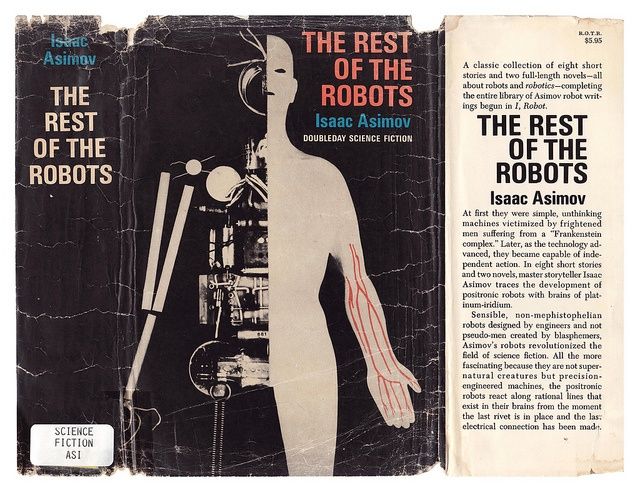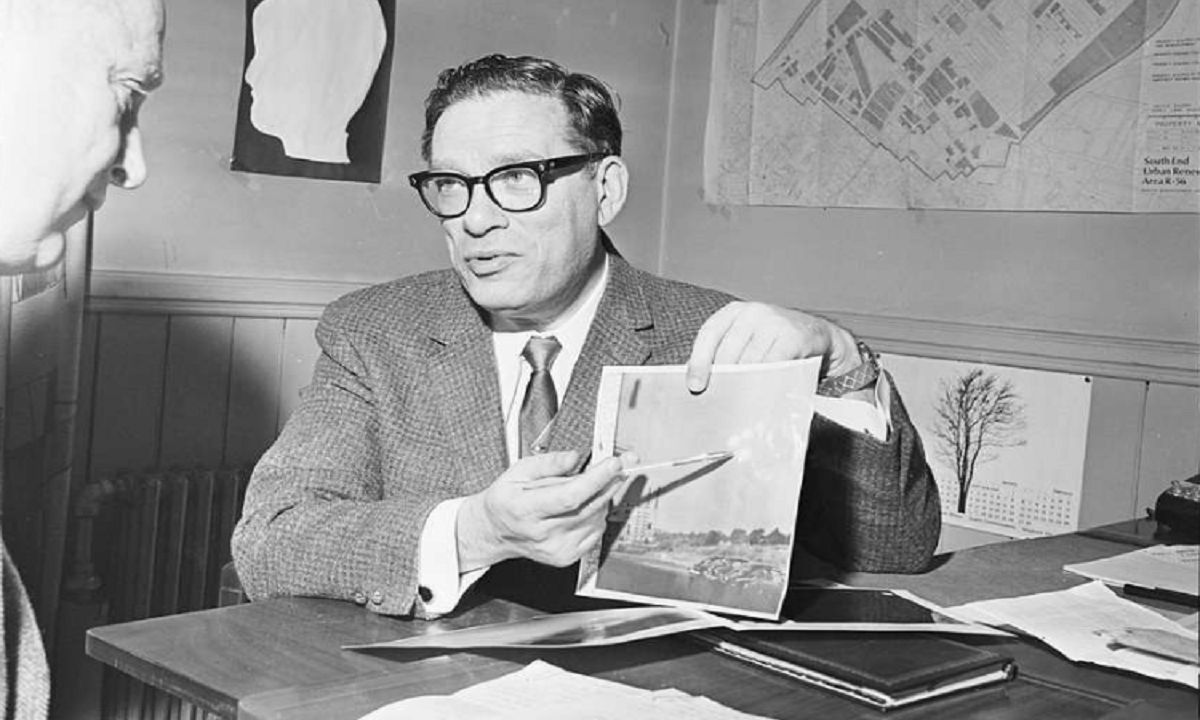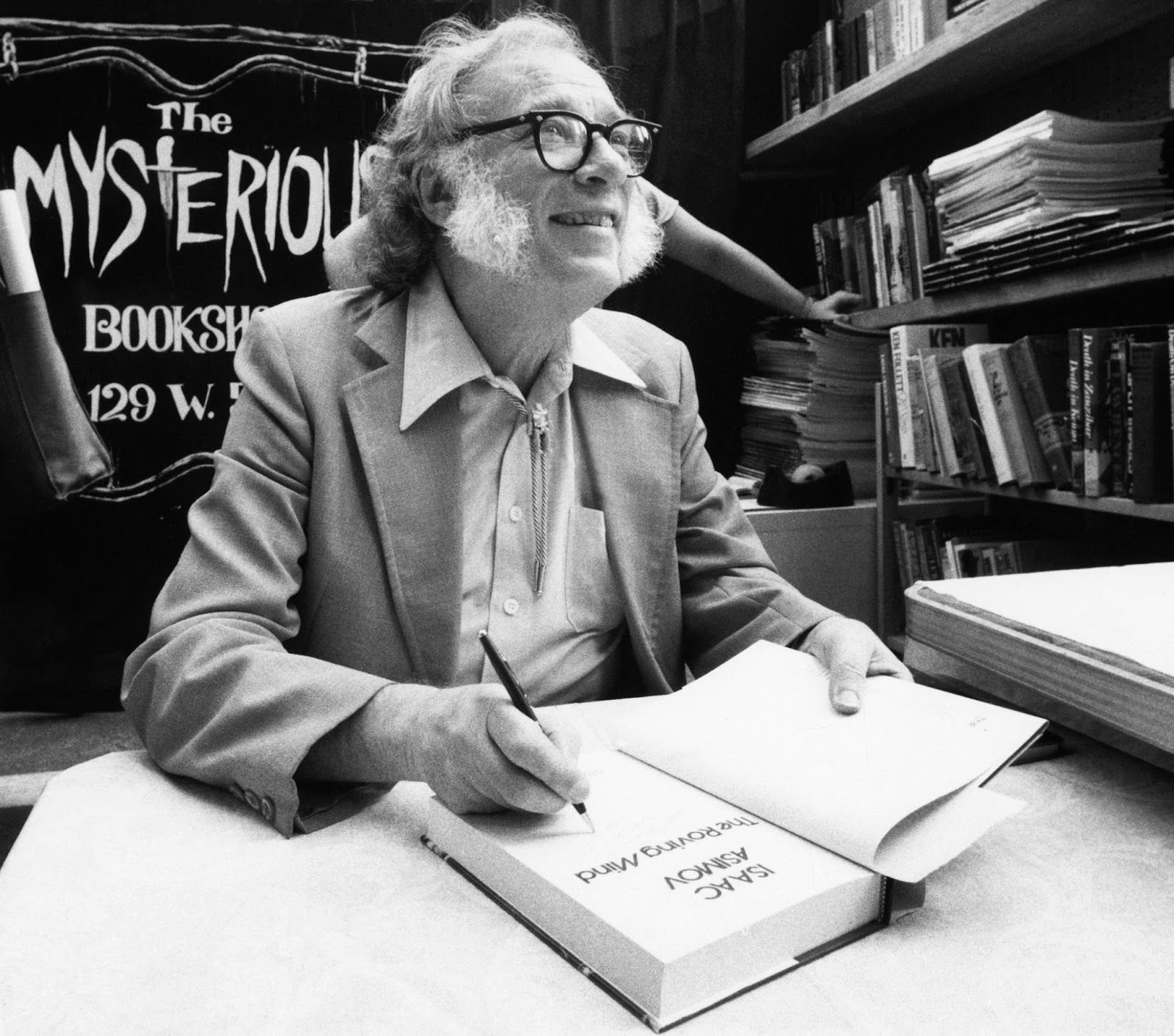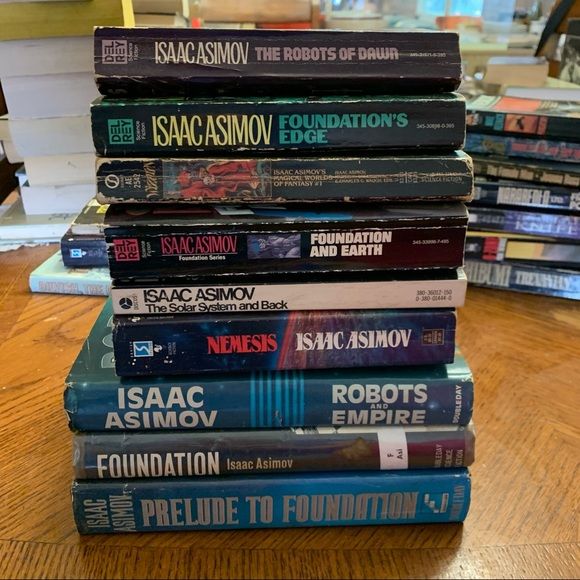Isaac Asimov: Son of the Russian Winter
You can’t write good science fiction if you know nothing. Work to earn a living, write for writing's sake. Be realistic.

Work to earn a living, write for writing's sake. Be realistic.
1921
It is the winter of 1921 in Petrovichi (USSR), on the border with Belarus. In the small sanatorium of the village, 17 children are sick with pneumonia. The Bolsheviks have won the civil war, and the effects on the population are severe. Lenin's “Red Terror” roams the Russian countryside like an hangman. A planned, brutal and unrelenting terror, conceived by Lenin long before the revolution, extended to the population and the army from the very beginning. It is cold in Petrovichi and the social and political circumstances are not the best to find any kind of assistance. There is not much chance for the 17 children sick with pneumonia, because the available medical care is not enough to heal them. No matter how best the local doctor tries, 16 children do not survive, but the last one miraculously overcomes the debilitating pneumonia and is saved. His name is Isaak Yudovich Azimov, one of the fathers of science fiction.

Violence is the last refuge of the powerless.
(I. Asimov)
New live in NY
Isaac Asimov does not know the exact day of his birth, which has always fascinated me, but since he was born between October 4 and January 2, 1920, he chooses January 2. After his miraculous recovery, and to escape the Red Terror, his family set sail for the United States, staying with an uncle in Brooklyn. Here their surname becomes Asimov and Isaak becomes Isaac.
If my family had stayed in the Soviet Union, I would probably have received an education similar to the one I did, and I would have become a chemist, and maybe even a science fiction writer. On the other hand, it’s very likely that I would have died during the German invasion of the Soviet Union, between 1941 and 1945, and although I think I would have tried to do my best before that, I’m so glad I didn’t have to. I would rather live if I can.
Isaac is a smart boy. He can’t sit still, sleeps little, and reads a lot. The family runs a candy store with newspapers and magazines, and this is where he finds the science fiction stories.
If my father had not also had a candy store, I would never have had the slightest chance to read science fiction magazines. For something as superfluous as reading, there was no way for me to get a quarter or half a dollar.... I am still deeply moved by that thought.
Feeling like a writer
Reading is a doorway. Reading is a threshold. Reading is an entrance to a world of possibilities and visions. Isaac begins to push his father because he wants to write. He feels he has something to say. He is 16 years old when his father gives him a typewriter. I think it was one of the best moments of his life. I can imagine him sitting down and making his first attempts to type out the stories that he had written down on paper. The excitement he must have felt. I can hear the sound of the typewriter in there. I can hear the sound of the street coming in through his window. I can hear his mother’s voice calling him for lunch, but he ignores it, because he is completely caught up in writing, and he can’t stop writing, he can’t tear himself away.

Becoming a writer
His first publication, an ironic piece about the birth of his brother Stanley, appears in the Boys High School literary magazine in 1934. Isaac is not in good health, perhaps as a result of the severe pneumonia he survived but which left indelible scars on his lungs. In 1939 he graduates with a degree in chemistry, having dropped out of zoology because he refused to dissect a cat. But in the meantime he's turning out SF magazines – Astounding Science Fiction, Amazing Stories, Thrilling Wonder Stories, Future Fiction, and so on. Every writer needs a true friend, or someone to help him not give up, and for Isaac the friend who helps him not give up and believes in him is John Campbell, editor of Astounding SF. Asimov is sure that he has something to say and does not want to give up. His is a tenacious, almost superb realism, and after all he is the only survivor of the 17 children of Petrovichi, a mark he cannot forget. He continues to send stories to magazines, and this begins to make his name known, giving him a place of honor in the Golden Age of SF (roughly 1938-1950), shared with Alfred Van Vogt and Robert Heinlein, among others.
Why did Asimov succeed?
In 1979, Asimov publishes an article entitled “Advice” in Isaac Asimov’s Science Fiction Magazine. It is a list of suggestions he gives to aspiring writers who continue to send him stories for publication in his magazine or for help. Here is what he writes:
1. You can never make beautiful furniture if you do not know how to use a saw and a hammer.
Concerned about the quality of the stories that come to him, Isaac writes that to be a good writer, science fiction or otherwise, one must first have a deep knowledge of language, spelling, grammar and syntax, lexical property, harmony, fluency. As references he points to Dickens, Twain and Wodehouse, especially for the fluidity of their writing.
I've heard SF writers talk about being influenced by major literary figures such as Kafka, Proust, and Joyce. Is it true or is it just posturing? For my part, I make no such claims. I learned to write science fiction by carefully reading other science fiction, and among those who have influenced my style the most is Clifford Simak.
2. You can’t write good science fiction if you know nothing.
For Asimov, in order to write science fiction, it is essential to know the "science" of scientific and technological progress. In the debate over definitions of SF and the resulting implications, Asimov sides with the "Hard SF" group, i.e., science fiction that is well grounded in science and logic. And he rejects both the term speculative fiction (which is aimed more at inner worlds, reflections, meditations...) and the Sci-Fi of the movies that are rich in special effects.
3. Write hard and have both patience and common sense.
Work to earn a living, write for writing's sake. Be realistic.

Asimov's reading order (suggested by Asimov himself)
The Complete Robot (1982) and/or I, Robot (1950)
Caves of Steel (1954)
The Naked Sun (1957)
The Robots of Dawn (1983)
Robots and Empire (1985)
The Currents of Space (1952)
The Stars, Like Dust (1951)
Pebble in the Sky (1950)
Prelude to Foundation (1988)
Note: Forward the Foundation (1993) was then unpublished, but would have followed Prelude.
Foundation (1951)
Foundation and Empire (1952)
Second Foundation (1953)
Foundation's Edge (1982)
Foundation and Earth (1986)
Bibliography
- I. Asimov, In Memory Yet Green: The Autobiography, 1920-1954.
- I. Asimov, In Joy Still Felt: The Autobiography, 1954-1978.
- I. Asimov, A Memoir, 1994.
- I. Asimov, It's Been a Good Life, 2002.
- A Conversation with Isaac Asimov, Science Fiction Studies Vol. 14, No. 1 (Mar., 1987).
- Gunn James. (2005). Isaac Asimov. The foundations of Science Fiction. The Scarecrow Press, INc. Laham, Maryland (Toronto). Oxford.
- Robin R. Murphy, David D. Woods (2017). Beyond Asimov: The Three Laws of Responsible Robotics. In Machine Ethics and Robot Ethics. Routledge.
